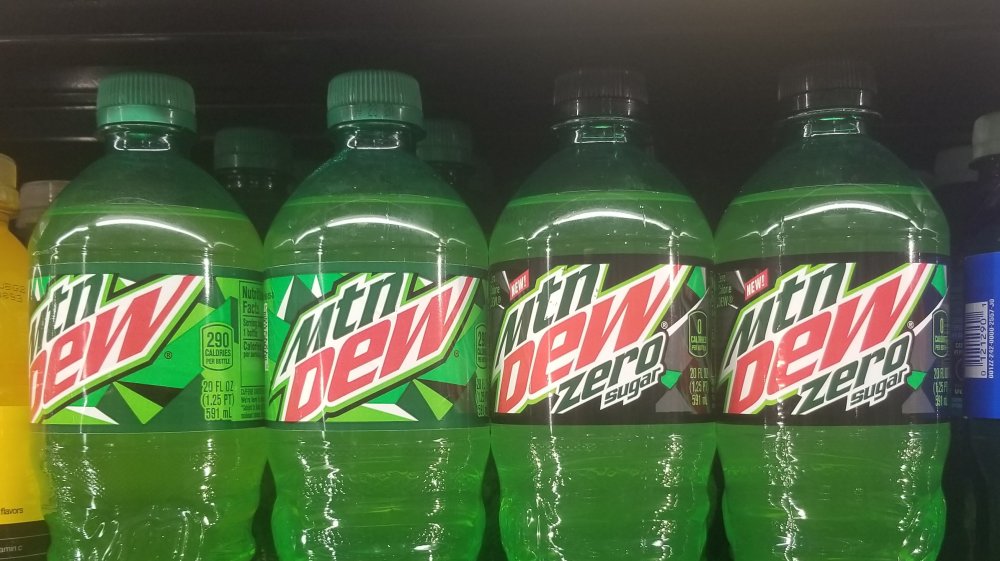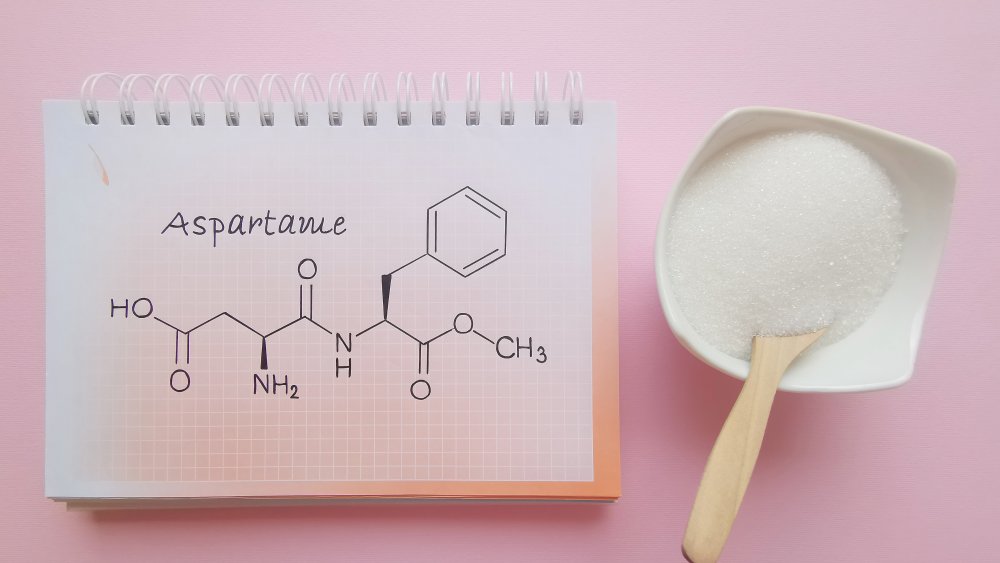You'll Regret Drinking Diet Mountain Dew. Here's Why
It's hard to find someone who hasn't done the Dew and for good reason. According to Statista, the marketing arm of this iconic beverage spent a whopping $120 million on advertising the brand and its suite of beverages in 2018. If your eyes just went cha-ching, we're with you. But clearly there's a method to spending those dollars because per the Motley Fool, Mountain Dew ranks fourth in popularity among sodas. And it's a drink that definitely keeps us talking.
Whether it is its industrial "neon" greenish-yellow color – depending on who you ask – that gets our tongues wagging or the rumors that it contains the contentious ingredient called brominated vegetable oil, an additive that's been linked to some health concerns and that Pepsico has since removed from its Mountain Dew products (via USA Today), people like to talk about this soda. Mountain Dew is by all accounts a bit of an enigma. If you are a fan of this drink but don't want the 170 calories and 46 grams of sugar in a 12-ounce serving, the sugar-free, zero-calorie diet version may seem like a good alternative. However, if you are going to do the Dew, there's one big reason you should consider skipping the diet Dew.
Diet Mountain Dew might not help with weight control
If you read the label on the back of the bottle you will quickly see Diet Mountain Dew has no redeeming nutritional value; however, Diet Mountain Dew does contain an ingredient that you may want to avoid: aspartame. Why? Per a Harvard Health article, while the FDA has approved the use of a number of artificial sweeteners – 5 to be exact, including aspartame – there are a few caveats that come along with their use. Some research suggests that while these sweeteners eliminate the high calories that come with sugar, they may cause people to crave sweeter, less-nutritious foods without associating sweetness with calories. This could lead to overeating and weight gain. Boston Magazine points to a study conducted on mice by Massachusetts General Hospital that suggests artificial sweeteners like aspartame may actually promote weight gain by interfering with an enzyme that fights obesity. If you are drinking Diet Mountain Dew to help control your weight, you may want to reconsider.
And if that doesn't dissuade you from drinking Diet Mountain Dew, then maybe the taste will. Mountain Dew purists swear that the diet version may look like the regular soda, but its taste is nothing like it. A writer on Brinks Market described Diet Mountain Dew as having a "bitter aftertaste" while a Vice reviewer said the "acrid bite" of the artificial sweetener did a disservice to the soda and its fan base.

